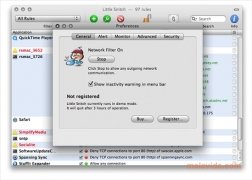

It followed her hiking with her dog and staying at her ex-boyfriend’s home, information she found disturbing. The app tracked her as she went to a Weight Watchers meeting and to her dermatologist’s office for a minor procedure. Magrin’s identity was not disclosed in those records, The Times was able to easily connect her to that dot. It recorded her whereabouts as often as every two seconds, according to a database of more than a million phones in the New York area that was reviewed by The New York Times. Her smartphone goes with her.Īn app on the device gathered her location information, which was then sold without her knowledge. Only one person makes that trip: Lisa Magrin, a 46-year-old math teacher. and travels to a middle school 14 miles away, staying until late afternoon each school day. Yet another leaves a house in upstate New York at 7 a.m. Another represents a person who travels with the mayor of New York during the day and returns to Long Island at night. One path tracks someone from a home outside Newark to a nearby Planned Parenthood, remaining there for more than an hour. The application (version 4) received a positive 4.5/5 review from Macworld.The millions of dots on the map trace highways, side streets and bike trails - each one following the path of an anonymous cellphone user. Little Snitch's integral network monitor shows ongoing traffic in real time with domain names and traffic direction displayed.

The dialog also allows the user to restrict the parameters of the connection, restricting it to a specific port, protocol, or domain. For that, a dialog is presented to the user, which allows one to deny or permit the connection on a one-time, time limited, or permanent basis. If an application or process attempts to establish a network connection, Little Snitch prevents the connection, if a rule for that connection has been set by the user.

Until Little Snitch 4, it controlled network traffic by registering kernel extensions through the standard application programming interface (API) provided by Apple, but for its 5th release it switched to using Apple's Network Extensions due to the deprecation of Kernel Extensions on macOS Catalina. Unlike a stateful firewall, which is designed primarily to protect a system from external attacks by restricting inbound traffic, Little Snitch is designed to protect privacy by limiting outbound traffic.

It is produced and maintained by the Austrian firm Objective Development Software GmbH. It can be used to monitor applications, preventing or permitting them to connect to attached networks through advanced rules. Little Snitch is a host-based application firewall for macOS.


 0 kommentar(er)
0 kommentar(er)
